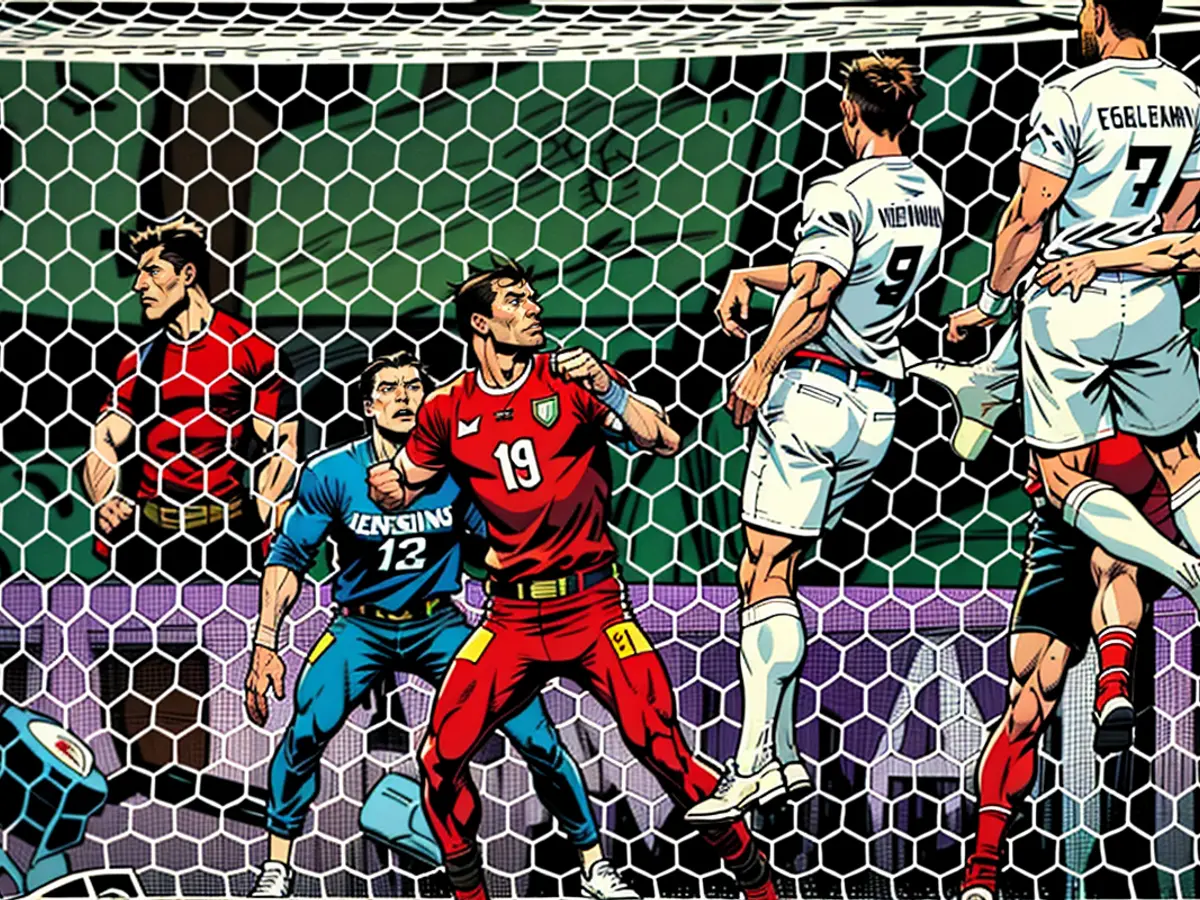Soccer - Own goals, few grumbles and late goals: the trends of the European Championship
There were numerous own goals, but only a few yellow cards, many age records and a multitude of goals in stoppage time and from a distance. These are the trends of the group stage of the UEFA European Football Championship in Germany.
Own Goals
A certain "E. Igentor" topped the goalscoring chart of the EM with an impressive lead. He managed to score seven own goals. However, this trend only confirmed the previous EM, where there were a total of eleven own goals by the end of the tournament. What was peculiar at the time was that in the five European Championships before that, there were a total of eight own goals.
Goals in Stoppage Time
A record has already been set after the group stage. Ten goals have already been scored after the 90th minute, while nine were scored in France eight years ago. Some goals were also decisive. Niclas Füllkrug's equalizer against Switzerland secured Germany the group win instead of the Swiss, Mattia Zaccagni's goal against Croatia granted Italy progression, and Croatia's elimination.
Only the Captain Can Complain
The annoying group formations are almost extinct - and one wonders why no one had dealt with it earlier. For the EM, the UEFA introduced the rule that only the team captains could complain to the referees about their decisions. If the captain was a goalkeeper, a player would be named as a representative. All others risked a yellow card. The implementation was surprisingly successful and smooth, and the DFB is now testing the rule for the Bundesliga.
Age Extremes: From 16 to 41
Age does not protect from performance - but it is also not an obstacle. There were some age records set in both directions during this 17th EM final tournament. The Spaniard Lamine Yamal became the youngest player ever to be fielded in an EM at the age of 16. The Portuguese Pepe became the oldest at 41. Luka Modric, a former world footballer, scored the oldest EM goal with his worthless leadership goal against Italy at the age of 38. DFB coach Julian Nagelsmann set a record on the sidelines. The 36-year-old is the youngest head coach at an EM.
Scant Yellow Cards
It went well: The first yellow card was given in the first half of the opening match, when the Scot Ryan Porteous tripped DFB captain Ilkay Gündogan in the penalty area and was shown a straight red card. It was (almost) the only yellow card in the entire group stage. In the final match between Turkey and the Czech Republic, two Czechs were sent off with yellow-red or red cards. During the previous EM, six players had been sent off the field. At that time, there had only been two.
TV Experts
It was already a trend in recent years. For the first time, so many women were employed as TV experts at a major men's tournament. Almuth Schult (ARD), Friederike Kromp, Laura Freigang, Kathrin Lehmann (both ZDF), and Tabea Kemme (Magenta TV) brought a fresh perspective. Schult was particularly praised.
- Despite numerous own goals, the preliminary round of the European Football Championship in Germany saw fewer yellow cards compared to previous tournaments.
- Niclas Füllkrug's equalizer against Switzerland in stoppage time was pivotal, securing Germany's advancement instead of Switzerland.
- The rule that only team captains can complain to the referees was implemented successfully during the UEFA European Football Championship.
- The Spaniard Lamine Yamal, at the age of 16, became the youngest player ever to be fielded in an EM, while the Portuguese Pepe, at 41, became the oldest.
- The initial yellow card of the tournament was given to Ryan Porteous of Scotland for tripping Germany's captain Ilkay Gündogan in the penalty area.
- Women broke barriers as TV experts at the European Football Championship, with Almuth Schult, Laura Freigang, Friederike Kromp, Kathrin Lehmann, and Tabea Kemme bringing fresh perspectives.
- The increase in own goals in the group stage of the UEFA European Football Championship continued a trend from the previous tournament.
- In the final match between Turkey and the Czech Republic, two Czech players were sent off with yellow-red or red cards, making it an anomaly in the tournament.
- Germany's DFB coach Julian Nagelsmann became the youngest head coach at an EM, at the age of 36.
- Some goals during the tournament were decisive, with Mattia Zaccagni's goal against Croatia granting Italy progression and causing Croatia's elimination.
- The UEFA European Football Championship saw records being set in own goals and goals scored in stoppage time, surpassing previous tournaments.
- The implementation of the rule that only team captains can complain to the referees was so successful that it is now being tested for the Bundesliga.








